Kosher Organizations Ask For a New ‘Equity Doctrine’ During the USDA Jewish Heritage Celebration
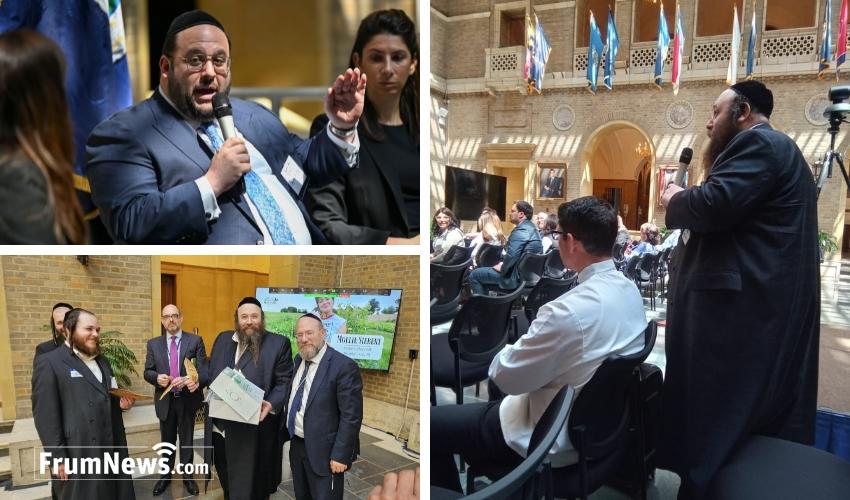
The USDA held Jewish American Heritage Month Celebrations at USDA Headquarters, in Washington D.C.. The event brought together key stakeholders to discuss trends, data points, and issues faced by kosher producers and processors, certifiers, vendors, and emergency food providers.
By Laura Allen – FrumNews.com
Washington D.C. — The USDA held Jewish American Heritage Month Celebrations recently at USDA Headquarters, in Washington D.C.. The event brought together key stakeholders for the USDA Center for Faith Based and Neighborhood Partnerships, USDA leadership, and others to discuss trends, data points, and issues faced by kosher producers and processors, certifiers, vendors, and emergency food providers. The event featured leadership remarks, as well as panel discussions with partner organizations and a networking reception.
The celebration was hosted by the USDA Center for Faith Based and Neighborhood Partnerships, led by Samantha Josephs, and is part of her long-running strategic collaboration with several non-governmental organizations, providing an opportunity to celebrate and develop new partnerships with Jewish-American organizations in agriculture and food systems.
While there are many efforts and accomplishments to celebrate, the rise of anti-Semitism and how everyone’s world changed after October 7th along with the Administration’s commitment to help fight it, was a focal point during the event in addition to figuring out solutions on how to close the gap of kosher foods for emergency food providers and school programs. Adding more kosher food to the types of food procured by the USDA and changing the food distribution equity doctrine was center stage. Representatives from the Biden administration highlighted national strategies on how to counter anti-Semitism during this challenging time—especially the ensuring of equal access to all USDA feeding programs for those families with religious dietary needs—such as kosher and halal-observant individuals. Other speakers and panelists echoed these concerns as well.
The event had two panel discussions, one called Kosher Food Access in Emergency Food and School Meals. The panelists were: Samantha Josephs, Director Center for Faith Based Partnerships, USDA; Cindy Long, Administrator of Food and Nutrition Service, USDA; Jessica Chait, Managing Director, Food Programs and Policy, Met Council; Rabbi Avi Schnall, Director of Federal Education Affairs, Agudath Israel of America, and NJ 30th District Assemblyman.
The second panel was called Supply Chain, Production, and Distribution of Kosher Food. The panelists were: Bruce Summers, Administrator, Agricultural Marketing Service, USDA; Rabbi Nahum Rabinowitz, Senior Rabbinic Coordinator for OU Kosher; David Hakes, Senior Director of Scientific and Regulatory Affairs, Dairy Farmers of America; Jeff Brown, CEO of Tabletrust Brands/Empire Kosher Poultry.
David Ungar, from United Talmudical Academy of Monroe, NY, the nation’s largest (12,000 eligible students) non-public-school school meals provider, raised the issues about the recent set-backs in having USDA eligible kosher tuna and American cheese for the school program. He spoke about the rising cost of food exceeding the rate of reimbursement, despite the increase. Kosher procurement did not have much of a margin to start with and despite them having the advantage of scale, they still wind up running at a deficit. David was accompanied by Shlomo Menashe Falkowitz of the Marba Lsoiva soup kitchen in Monroe, NY.
Allison Deal, ED of JCC Far Rockaway, NY, spoke about her experience in meeting small kosher emergency food providers all over the country and how their challenge had double jeopardy because since they couldn’t order the non-kosher items, their order amount didn’t meet the delivery minimum. That meant they got nothing.
Rabbi Avi Schnall, of Agudath Israel, mentioned the challenge of small private schools not meeting the threshold of making it worthwhile for them to go through all the headache of serving school meals, which results in situations that no one wants – children who are hungry.
The Yiddish Proverb, “What can you do with a good cow that gives a lot of milk and then kicks the bucket over?”, was referenced by Alexander Rapaport, ED of Masbia Soup Kitchen Network. While being thankful for all the efforts in introducing more kosher food to The Emergency Food Assistance Program (TEFAP) of the USDA, it’s not going to close the gap where the rubber meets the road without changing the equity doctrine. That means if an agency did not take pork and shellfish, they should be allowed to take more eggs. This could be implemented immediately without any big fix in the Farm Bill or a new USDA bid for kosher food.
Eve Wachhaus, COO of Adamah, raised the issue of single-serve wrappings and their impact on the environment of kosher food. She got a very nice response from panelist Jeff Brown, CEO of Empire.
During the kosher lunch, Mr. Rapaport handed out hand shmura matzah in honor of Pesach Sheni to all the attendees.
After lunch, USDA Secretary Thomas Vilsack spoke about growing up as an orphan and his fond memories of attending his neighbor family’s bar mitzvahs. He proclaimed that the Administration is committed to fighting anti-Semitism and making the USDA programs accessible to all Americans, regardless of faith. Rabbi Joel Pitkowski of Mazon, spoke about the responsibility we have to one another to make the world a better place. There were also remarks from Shani Mink, ED of the Jewish Farmer Network, and Eve Wachhaus, COO of Adamah. Dickran Jebejian, Met Council Fellow at USDA, who put the whole event together, addressed the crowd as well.
Jessica Chait of Met Council, noted that there are Jews and Muslims living in every city and almost every county across the country. They should know that our government programs are there to serve them, just as they do everyone else; and more than that, that their specific needs have been kept in mind when doing so, because no one should have to choose between their food and their faith. She thanked Secretary Vilsack and the USDA for their commitment to expanding the reach of the USDA programs to serve everyone equally.
“Attending the USDA Kosher Supply Chain and Food Insecurity Dialogue was worthwhile to me and the Cleveland Chesed Center. The theme which was consistently stated was that no one should need to choose between their food and their faith. Hearing from other frum directors struggling with the same challenges as us was somewhat comforting, and at the same time, a call for further collaboration and advocacy. I have already arranged a meeting with the Greater Cleveland Food Bank so that we can strategize how to maximize the quantity of kosher products we receive from them, so that we can devote more of our budget to kosher products – particularly meat, chicken, cheeses, and fish – products that are not currently available through the Food Bank”, said Rabbi Avrohom Adler, ED of Strengthening Families, Jewish Family Service Association of Cleveland.
Attendees are monitoring the reauthorization of the Farm Bill closely. It will be coming up for a vote in the near future.
1 Comment
-
08/27/2024 | כ"ג אב התשפ"ד
Congratulations !!! And success to my peers @ masbia soup kitchen it will be another successful year many thanks
Post your comments:
Read Next trending_flat
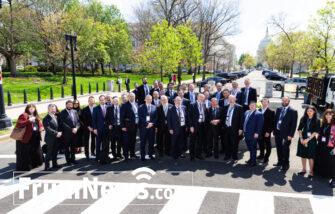 News
News
Agudah Yisroel Mission To Washington DC During Critical Time
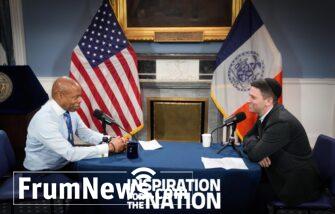 News
News
Eric Adams: "My Relationship With The Frum Community"
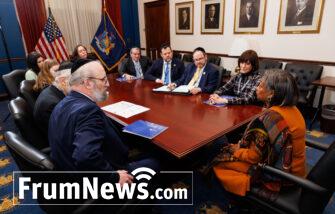 News
News


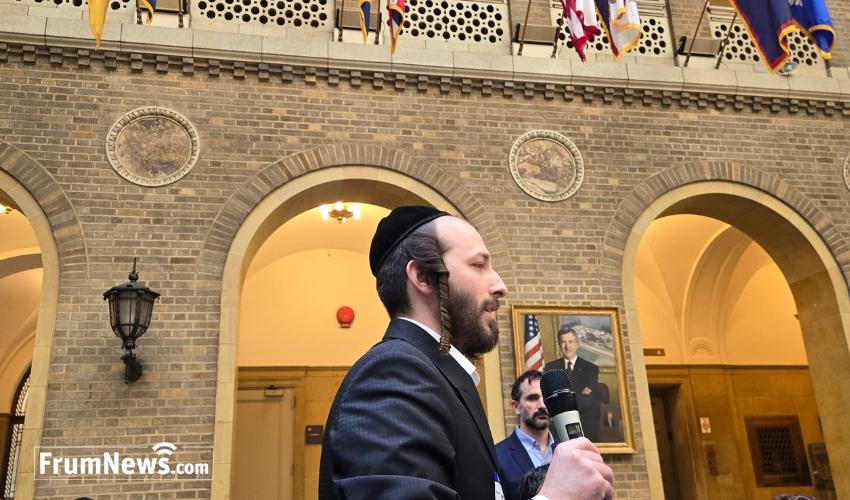
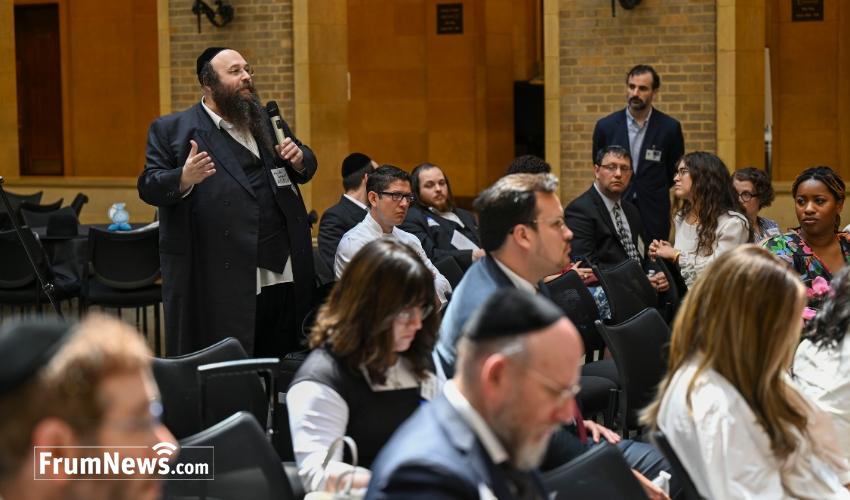
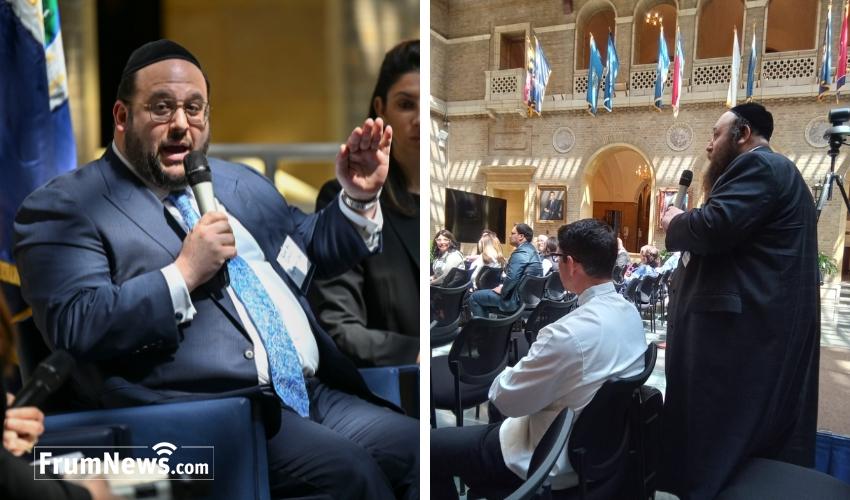
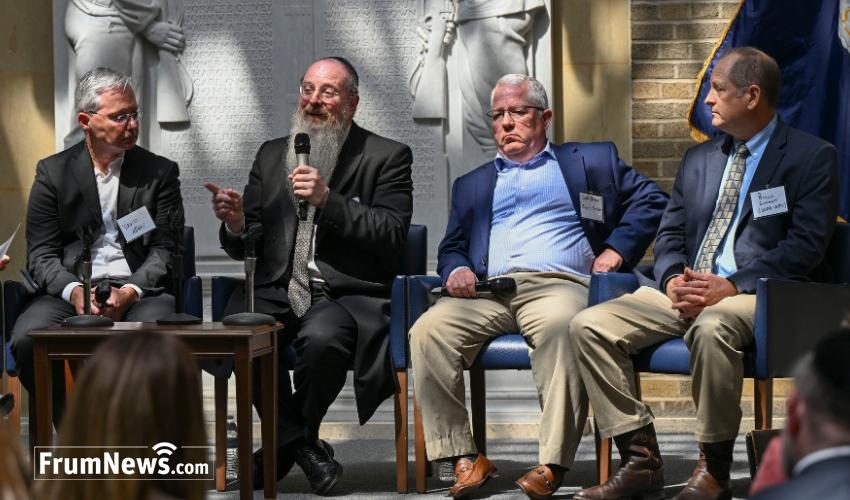
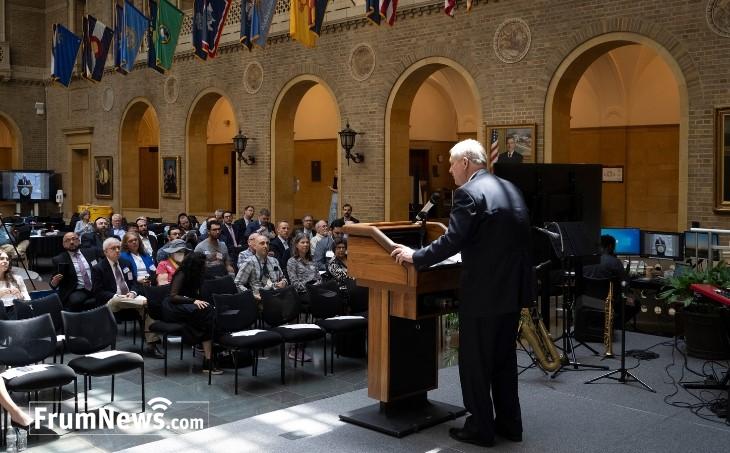
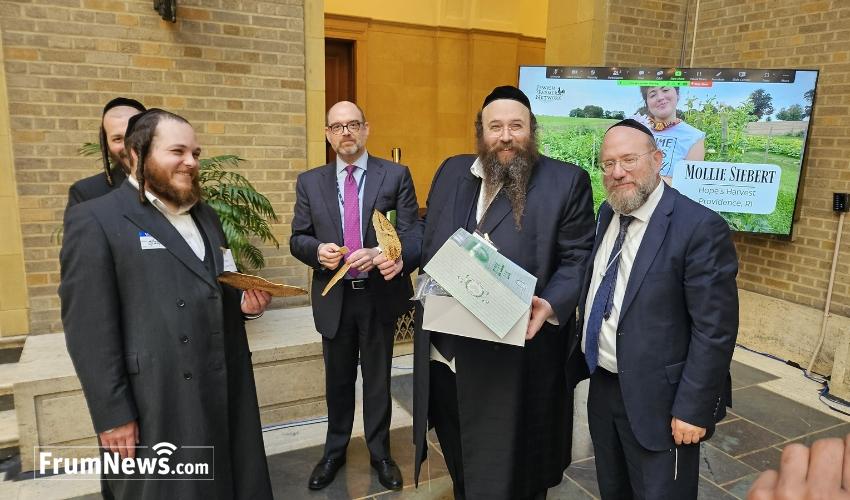
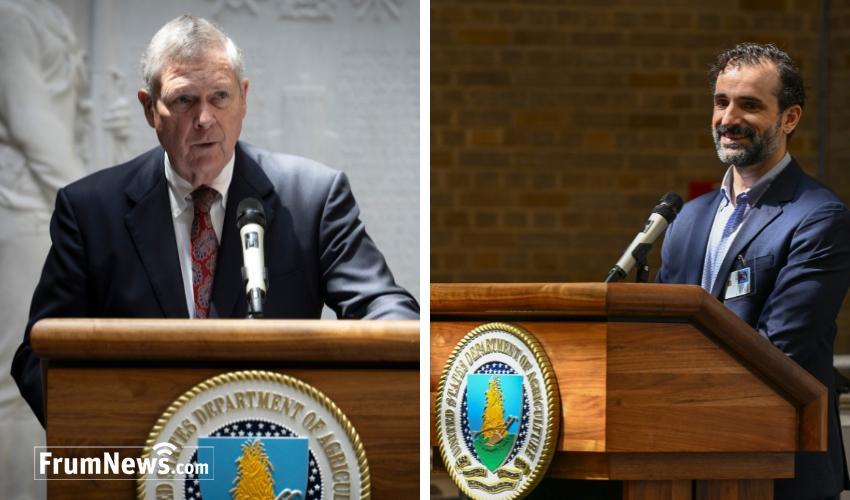
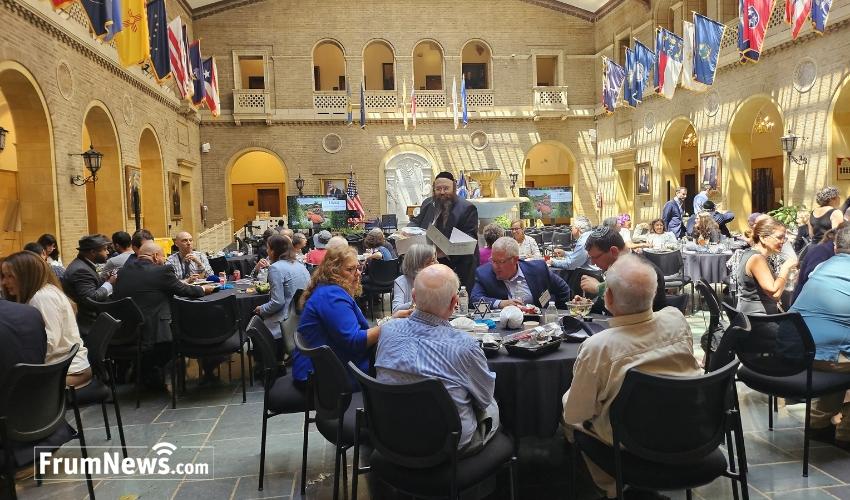
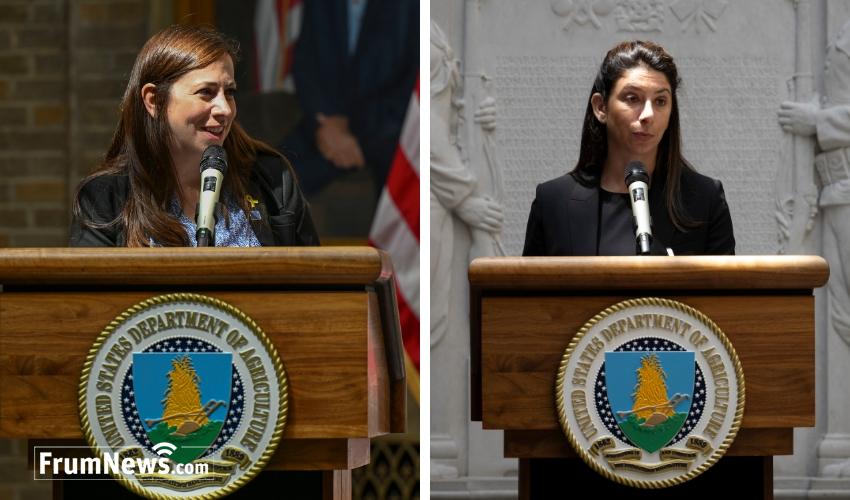
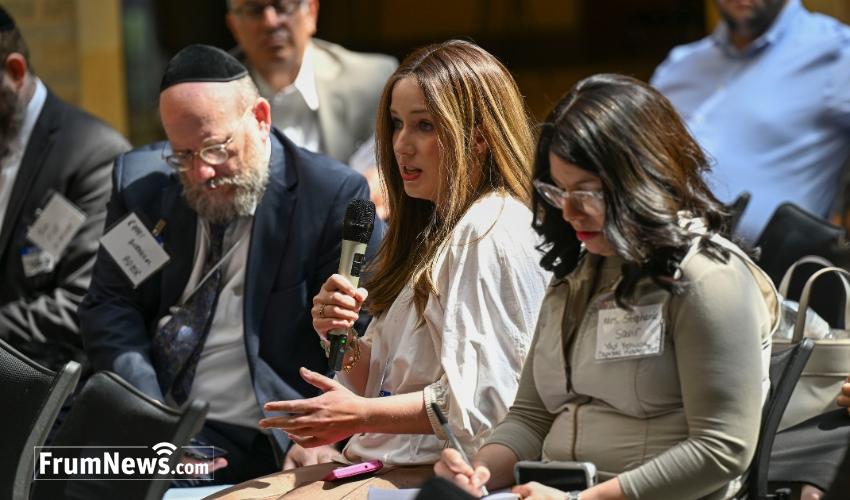
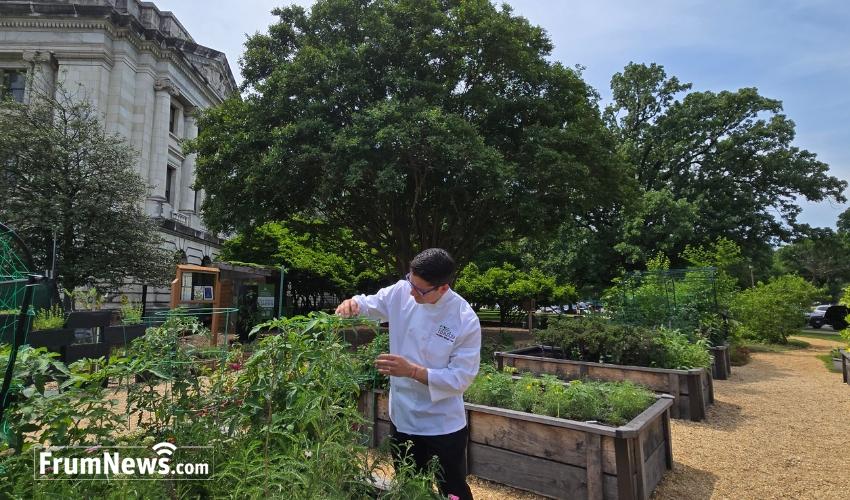

Post your comments: